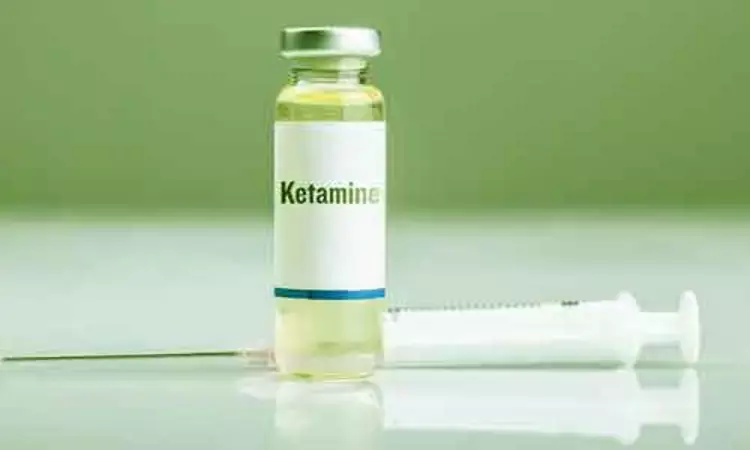- Home
- Medical news & Guidelines
- Anesthesiology
- Cardiology and CTVS
- Critical Care
- Dentistry
- Dermatology
- Diabetes and Endocrinology
- ENT
- Gastroenterology
- Medicine
- Nephrology
- Neurology
- Obstretics-Gynaecology
- Oncology
- Ophthalmology
- Orthopaedics
- Pediatrics-Neonatology
- Psychiatry
- Pulmonology
- Radiology
- Surgery
- Urology
- Laboratory Medicine
- Diet
- Nursing
- Paramedical
- Physiotherapy
- Health news
- Fact Check
- Bone Health Fact Check
- Brain Health Fact Check
- Cancer Related Fact Check
- Child Care Fact Check
- Dental and oral health fact check
- Diabetes and metabolic health fact check
- Diet and Nutrition Fact Check
- Eye and ENT Care Fact Check
- Fitness fact check
- Gut health fact check
- Heart health fact check
- Kidney health fact check
- Medical education fact check
- Men's health fact check
- Respiratory fact check
- Skin and hair care fact check
- Vaccine and Immunization fact check
- Women's health fact check
- AYUSH
- State News
- Andaman and Nicobar Islands
- Andhra Pradesh
- Arunachal Pradesh
- Assam
- Bihar
- Chandigarh
- Chattisgarh
- Dadra and Nagar Haveli
- Daman and Diu
- Delhi
- Goa
- Gujarat
- Haryana
- Himachal Pradesh
- Jammu & Kashmir
- Jharkhand
- Karnataka
- Kerala
- Ladakh
- Lakshadweep
- Madhya Pradesh
- Maharashtra
- Manipur
- Meghalaya
- Mizoram
- Nagaland
- Odisha
- Puducherry
- Punjab
- Rajasthan
- Sikkim
- Tamil Nadu
- Telangana
- Tripura
- Uttar Pradesh
- Uttrakhand
- West Bengal
- Medical Education
- Industry
Ketamine decreases seizure burden in super-refractory status epilepticus

Super refractory status epilepticus (SRSE) is one of the most challenging disorders to treat in the neurointensive care unit. Often, clinicians must resort to less-established treatments with regards to efficacy and safety. A recent study suggests Ketamine treatment was associated with a decrease in seizure burden in patients with SRSE. The research has been published in the journal Neurology on October 20, 2020.
Super-refractory status epilepticus (SRSE) is specified by ongoing or recurring clinical or electroencephalographic seizure activity 24 h or more after initiation of anesthetic treatment. Ketamine (KET) has a strong antagonistic effect on the NMDA–glutamate receptor. Its half-life is 2–3 h, and KET undergoes extensive hepatic metabolism. Animal models (hippocampal electrical stimulation or pilocarpine animal models) have demonstrated the efficacy of KET in refractory status epilepticus (RSE) in rats, even in late stages, when GABA-ergic drugs have failed. The most significant adverse effects of KET are hallucinations and sympathetic adrenergic effects. To test ketamine infusion efficacy in the treatment of super-refractory status epilepticus (SRSE), researchers evaluated the patients with SRSE who were treated with ketamine. They further assessed the effect of high doses of ketamine on brain physiology as reflected by invasive multimodality monitoring (MMM).
Researchers studied a series of 68 patients with SRSE who were admitted between 2009 and 2018, treated with ketamine, and monitored with scalp EEG. Among 68 patient,s 11 underwent MMM at the time of ketamine administration. They compared patients who had seizure cessation after ketamine initiation to those who did not. The mean age of patients enrolled was 53 ± 18 years, among which 46% were female. The average dose of ketamine infusion was 2.2 ± 1.8 mg/kg/h, with median duration of 2 (1–4) days and the average dose of midazolam was 1.0 ± 0.8 mg/kg/h at the time of ketamine initiation and was started at a median of 0.4 (0.1–1.0) days before ketamine.
Researchers noted that the seizure burden was decreased by at least 50% within 24 hours of starting ketamine in 55 (81%) patients, with complete cessation in 43 (63%). Upon generalized linear mixed effect model, they found that ketamine was associated with stable mean arterial pressure (odds ratio 1.39) and with decreased vasopressor requirements over time. They found no effect on intracranial pressure, cerebral blood flow, or cerebral perfusion pressure.
The authors concluded, "Ketamine treatment was associated with a decrease in seizure burden in patients with SRSE. Our data support the notion that high-dose ketamine infusions are associated with decreased vasopressor requirements without increased intracranial pressure".
For further information:
Medical Dialogues Bureau consists of a team of passionate medical/scientific writers, led by doctors and healthcare researchers. Our team efforts to bring you updated and timely news about the important happenings of the medical and healthcare sector. Our editorial team can be reached at editorial@medicaldialogues.in.
Dr Kamal Kant Kohli-MBBS, DTCD- a chest specialist with more than 30 years of practice and a flair for writing clinical articles, Dr Kamal Kant Kohli joined Medical Dialogues as a Chief Editor of Medical News. Besides writing articles, as an editor, he proofreads and verifies all the medical content published on Medical Dialogues including those coming from journals, studies,medical conferences,guidelines etc. Email: drkohli@medicaldialogues.in. Contact no. 011-43720751


